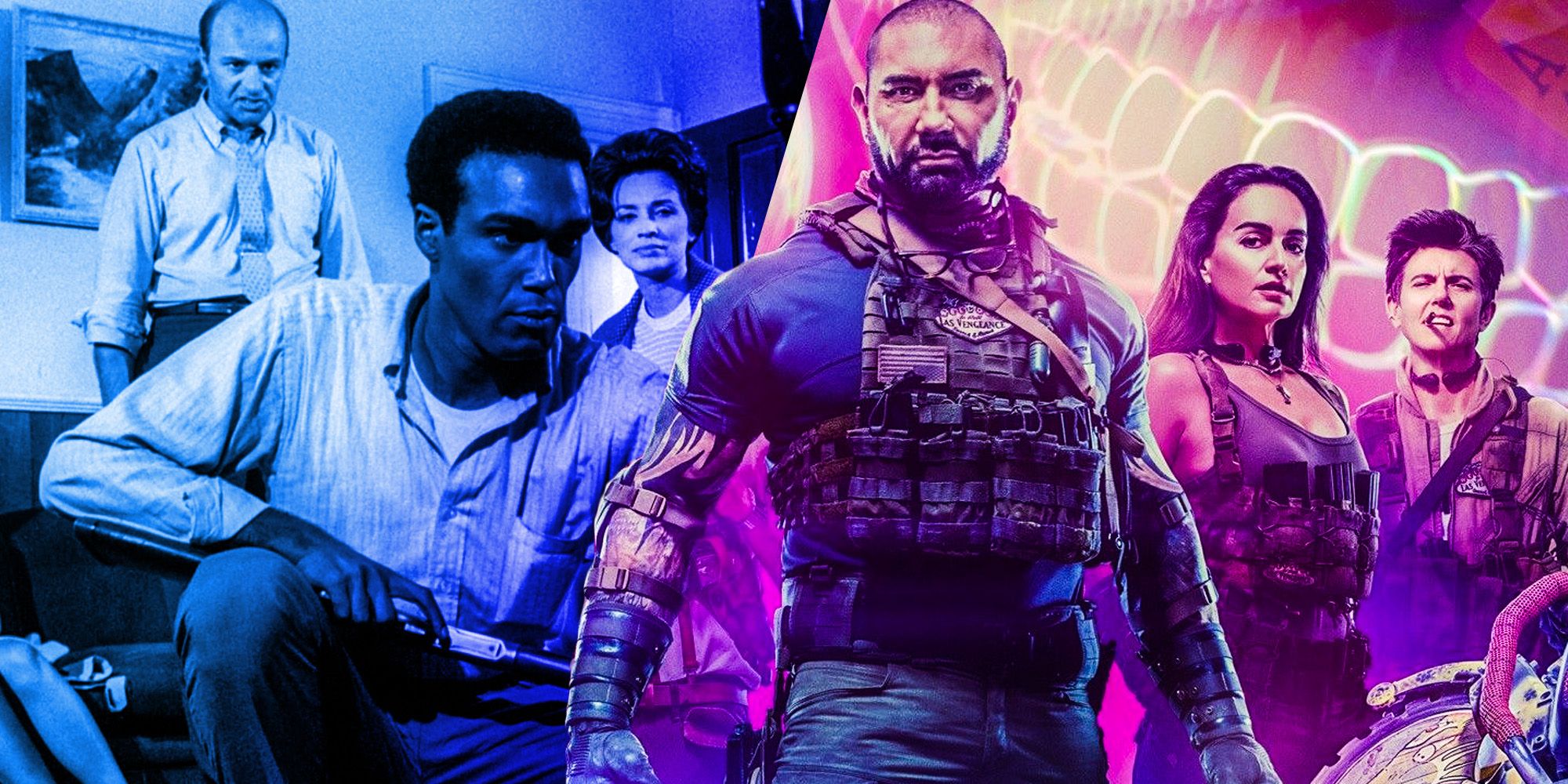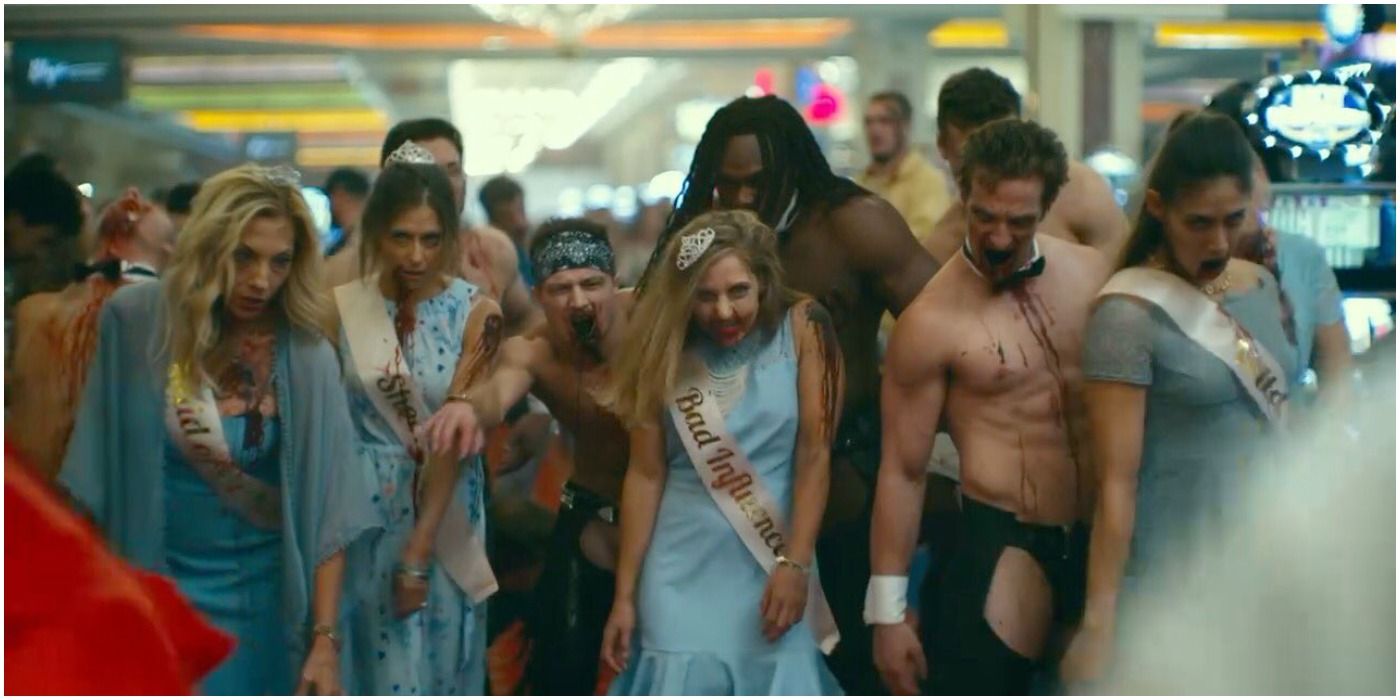Army of the Dead may have introduced new concepts to the zombie genre, but Zack Snyder's undead heist adventure still owes its central themes to the legendary George A. Romero. Obviously, the man who created the modern zombie picture has influenced nearly everything having to do with zombies, but it's the almost accidental social commentary that runs throughout Snyder's film that mirrors Romero's tendencies the closest.
The central plot of Army of the Dead revolves around a ragtag team of zombie-hunters hired to travel through a zombie-infected Las Vegas in order to break into a safe containing 200 million dollars. It's a classic heist setup that sounds like an apocalyptic Ocean's Eleven, but the zombie backdrop makes for timely imagery. The survivors in the area are kept behind a wall in a refugee camp deemed a quarantine zone in order to keep them safe from the undead virus but also separated from the rest of the healthy world. This sort of vocabulary is perfectly fitting for a zombie movie, but it also brings to mind political controversies that seem awfully familiar in today's age.
In a way, though, Snyder is simply conjuring the magic of zombie movies that have been a staple of the genre since its inception. Fans, critics, and film historians have been analyzing the supposed social and racial commentary in George A. Romero's Night of the Living Dead for decades, especially in regard to the film's black lead played by Duane Jones. However, Romero himself has stated that the decision to cast Jones was race-blind, based solely on the actor's audition and talent rather than a preconceived mission to make a political statement.
Likewise, Zack Snyder originally wrote the walled-off refugee camp as a plot device to establish a contained setting for the zombies to roam. According to a report by The Associated Press, though, the director realized the social parallels as the filmmaking process went on and discovered he could use these story elements to reflect contemporary political issues. He explains:
“Once you erect a giant wall around a city, you really find yourself referencing all kinds of laws that have been created for all different reasons. And I think your awareness of those things really is important.”
In this way, perhaps Army of the Dead more closely resembles Romero's celebrated sequel Dawn of the Dead in the way both films embraced the social implications of their settings. The mall that Dawn's zombies roam free in made for quite literally biting satire poking fun at vacant-minded consumers, but Romero also chose the shopping center because it made for a cool place to imagine what people hiding out there would do during an apocalyptic emergency. Likewise, a quarantined Las Vegas portrays the destruction of an American icon and places the survivors at the center of a political debate about re-introducing these exposed have-nots back into society. It's also an excuse to have a zombie tiger taken from Siegfried & Roy.
It's often quite difficult to separate zombie movies from social commentary, even if these ideas weren't entirely the original intent of their filmmakers. Even though the bulk of Army of the Dead was planned and shot before the COVID-19 pandemic, it's difficult not to think of the real-life virus when refugee camp officers use thermometer guns to read body temperatures. It's almost as if zombies themselves concurrently evolve with social issues regardless of their mindless instincts. That coincidental ability to reflect the ever-evolving state of affairs, represented by anonymous hordes of walking dead, is perhaps what made zombie movies endure for so long.


